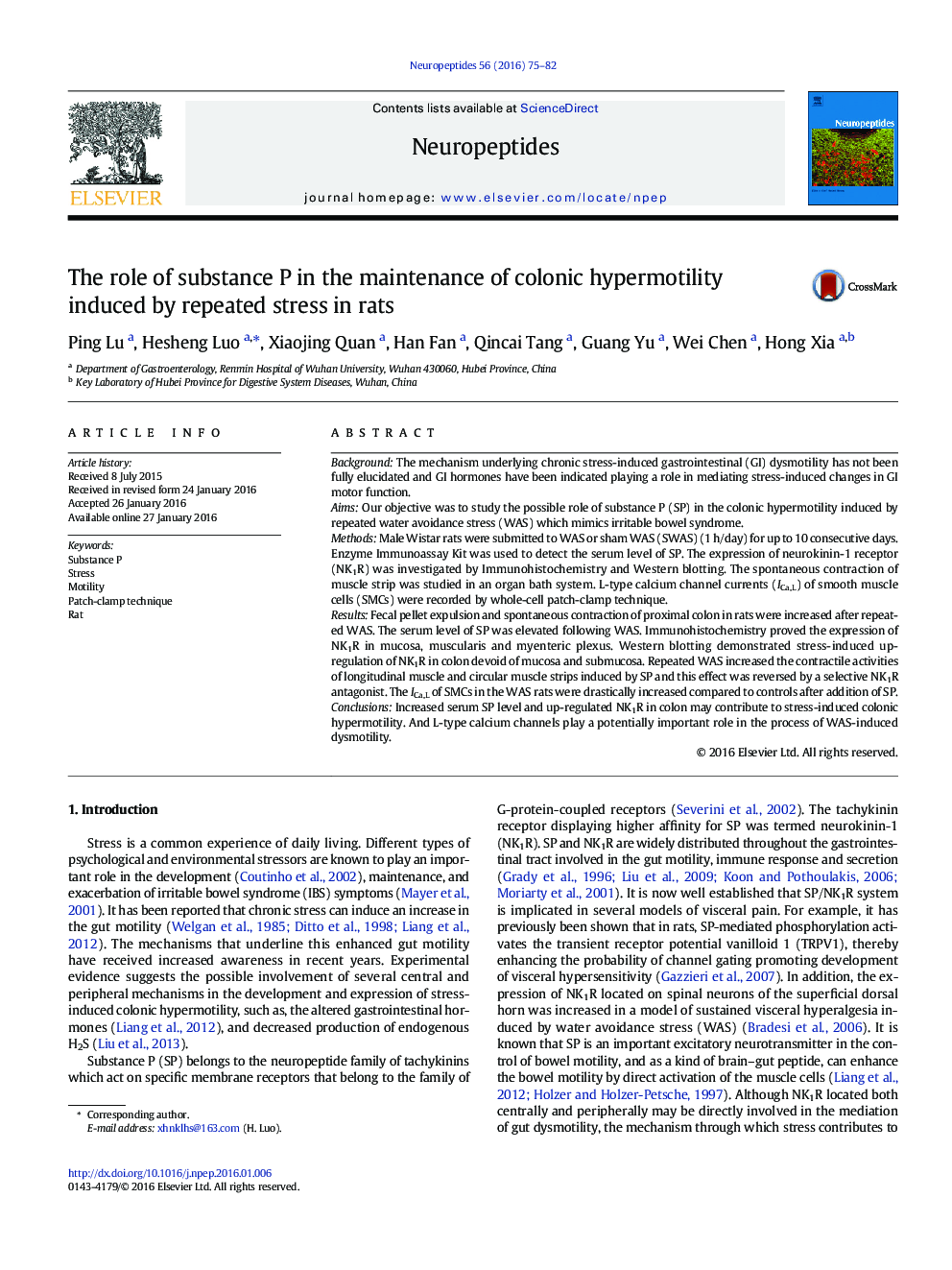| Article ID | Journal | Published Year | Pages | File Type |
|---|---|---|---|---|
| 2807946 | Neuropeptides | 2016 | 8 Pages |
•Repeated stress increased serum concentration of SP and expression of NK1R but not NK2R in colon.•WAS increased the muscle contraction induced by SP and this effect was reversed by selective NK1R antagonist.•The SP-induced increasing current of L-type calcium channel in WAS rats was higher than that in control group.
BackgroundThe mechanism underlying chronic stress-induced gastrointestinal (GI) dysmotility has not been fully elucidated and GI hormones have been indicated playing a role in mediating stress-induced changes in GI motor function.AimsOur objective was to study the possible role of substance P (SP) in the colonic hypermotility induced by repeated water avoidance stress (WAS) which mimics irritable bowel syndrome.MethodsMale Wistar rats were submitted to WAS or sham WAS (SWAS) (1 h/day) for up to 10 consecutive days. Enzyme Immunoassay Kit was used to detect the serum level of SP. The expression of neurokinin-1 receptor (NK1R) was investigated by Immunohistochemistry and Western blotting. The spontaneous contraction of muscle strip was studied in an organ bath system. L-type calcium channel currents (ICa,L) of smooth muscle cells (SMCs) were recorded by whole-cell patch-clamp technique.ResultsFecal pellet expulsion and spontaneous contraction of proximal colon in rats were increased after repeated WAS. The serum level of SP was elevated following WAS. Immunohistochemistry proved the expression of NK1R in mucosa, muscularis and myenteric plexus. Western blotting demonstrated stress-induced up-regulation of NK1R in colon devoid of mucosa and submucosa. Repeated WAS increased the contractile activities of longitudinal muscle and circular muscle strips induced by SP and this effect was reversed by a selective NK1R antagonist. The ICa,L of SMCs in the WAS rats were drastically increased compared to controls after addition of SP.ConclusionsIncreased serum SP level and up-regulated NK1R in colon may contribute to stress-induced colonic hypermotility. And L-type calcium channels play a potentially important role in the process of WAS-induced dysmotility.
